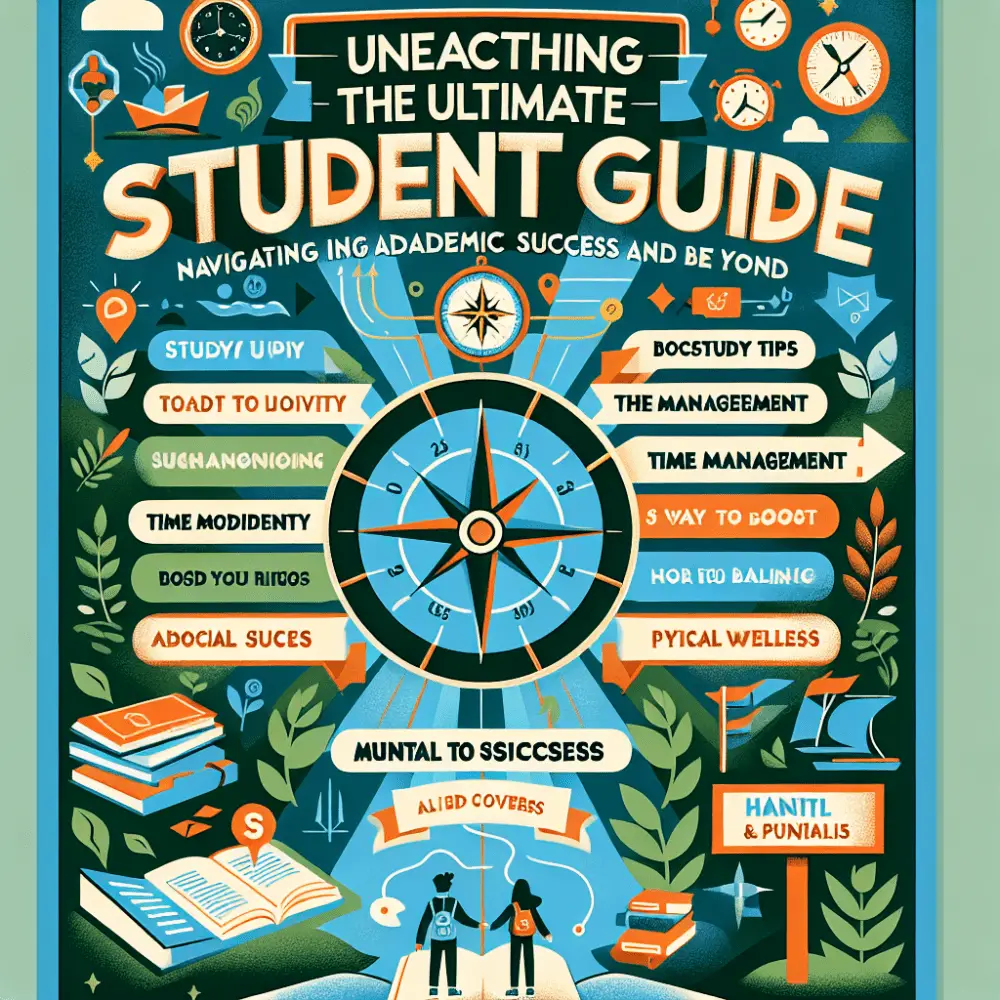
Being a student is an exciting and transformative time in a person’s life. It is a period filled with new experiences, growth, and challenges. Navigating through the world of academics and beyond can be a daunting task, but with the right tools and guidance, it can also be immensely rewarding. This ultimate student guide aims to provide valuable insights on how to achieve academic success and thrive in other aspects of student life.
In order to truly unearth the path to success, students need to have a clear understanding of what it entails. Academic success goes beyond obtaining good grades; it encompasses developing essential skills such as critical thinking, time management, effective communication, and self-discipline. These skills not only contribute to excelling academically but also set the foundation for future endeavors.
Setting Goals and Creating Action Plans
An important first step towards academic success is setting goals. Setting specific, measurable, achievable, relevant, and time-bound (SMART) goals allows students to have a clear vision of what they want to achieve. Whether it’s completing assignments ahead of schedule or earning a specific GPA, setting goals provides students with motivation and direction.
Once goals are established, students should create action plans detailing the steps needed to achieve them. Breaking down larger tasks into smaller, manageable ones makes them less overwhelming and more achievable. It is important for students to allocate their time effectively by prioritizing tasks based on importance and urgency.
Developing Effective Study Habits
Successful students understand the importance of developing effective study habits. Studying in a focused and organized manner improves retention of information and enhances overall academic performance.
One key habit is creating a conducive study environment. This means finding a quiet and comfortable space that is free from distractions. Having the necessary study materials readily available, such as textbooks, notebooks, and stationery, also contributes to an effective study environment.
Another crucial aspect of studying effectively is utilizing active learning techniques. Instead of passively reading or memorizing information, students should engage with the material through techniques such as summarizing content in their own words, making flashcards, or teaching the material to someone else. These techniques promote deeper understanding and increase the likelihood of retaining information.
Building Relationships and Seeking Support
While academic success is important, it is equally important for students to build relationships and seek support. Connecting with peers who share similar academic interests can foster collaboration and provide valuable insights. Study groups or forming partnerships for projects can enhance learning experiences by fostering new perspectives.
In addition to peer relationships, building relationships with professors or mentors can also be beneficial. Professors are often willing to provide guidance and support outside of class. Seeking their advice or participating in office hours demonstrates initiative and can lead to valuable networking opportunities.
If additional support is needed academically, many institutions offer tutoring services or academic resource centers that provide personalized assistance in various subjects. It’s important for students to be proactive in seeking help when they need it rather than waiting until they are overwhelmed.
Beyond Academics: Balancing Student Life
While academics play a significant role in student life, it is essential to strike a balance between academic pursuits and personal well-being. Engaging in extracurricular activities not only provides opportunities for personal growth but also helps develop a well-rounded resume.
Participating in clubs, organizations, or sports teams can enhance leadership skills, teamwork, and time management. Additionally, it provides a platform to develop new interests and meet like-minded individuals.
Furthermore, taking care of physical and mental health is crucial for overall well-being. Regular exercise, proper nutrition, and sufficient rest contribute to better focus and productivity. Students should make time for activities they enjoy and prioritize self-care.
FAQs
Q: How can I stay motivated during challenging times?
A: It’s normal to face challenges while pursuing academic excellence. To stay motivated, break tasks into smaller manageable parts, celebrate small wins along the way, and remind yourself of the bigger picture.
Q: How do I manage my time effectively?
A: Prioritize tasks based on importance and urgency using techniques like the Eisenhower Matrix. Set specific blocks of time for studying or completing assignments and eliminate distractions during these periods.
Q: What if I need help academically?
A: Seek help from professors or utilize tutoring services provided by your institution. Don’t hesitate to ask questions in class or engage in discussions with classmates.
Q: How can extracurricular activities benefit my academic success?
A: Engaging in extracurricular activities improves time management skills, enhances leadership abilities, fosters personal growth, and provides a well-rounded college experience that appeals to future employers or graduate programs.
Q: How important is self-care during college?
A: Self-care is crucial during college as it helps maintain physical and mental well-being. Taking breaks, practicing stress-reducing activities like meditation or hobbies, and seeking support when needed are vital for long-term success.
In conclusion, the journey towards academic success and beyond involves setting goals, developing effective study habits, building relationships, and finding a balance between academics and personal well-being. By following this ultimate student guide, students can navigate the challenges of college life with confidence, paving the way for a successful future.


















